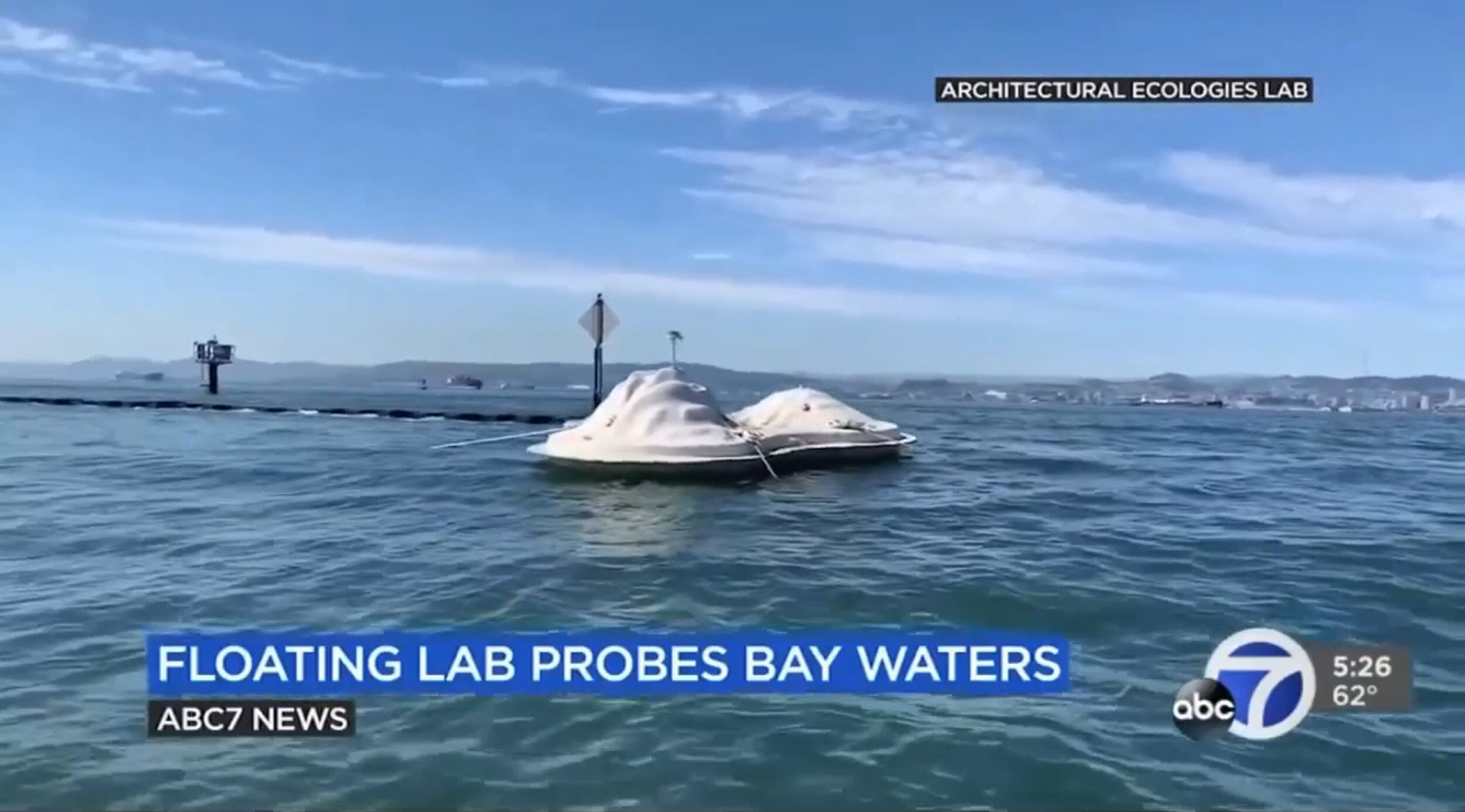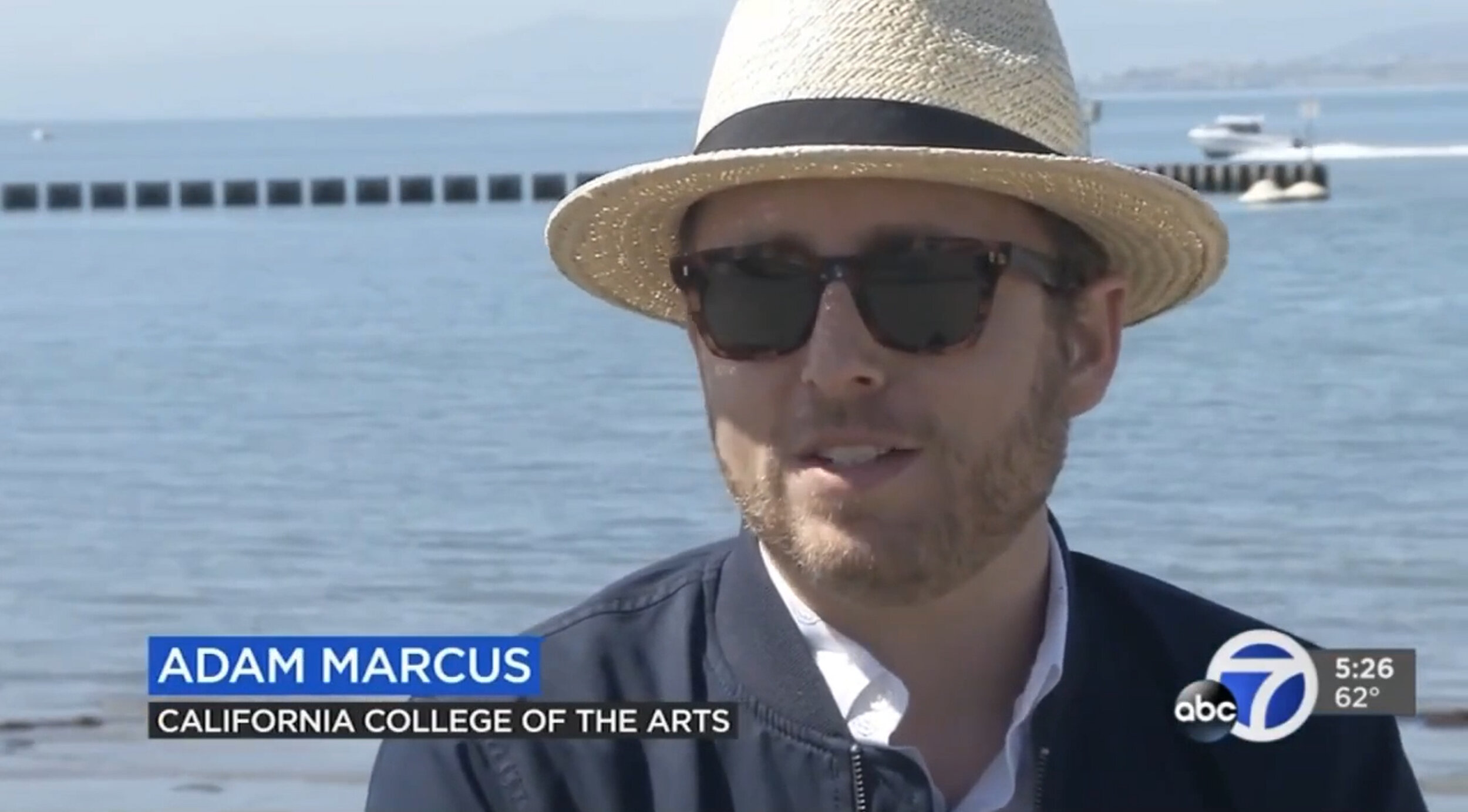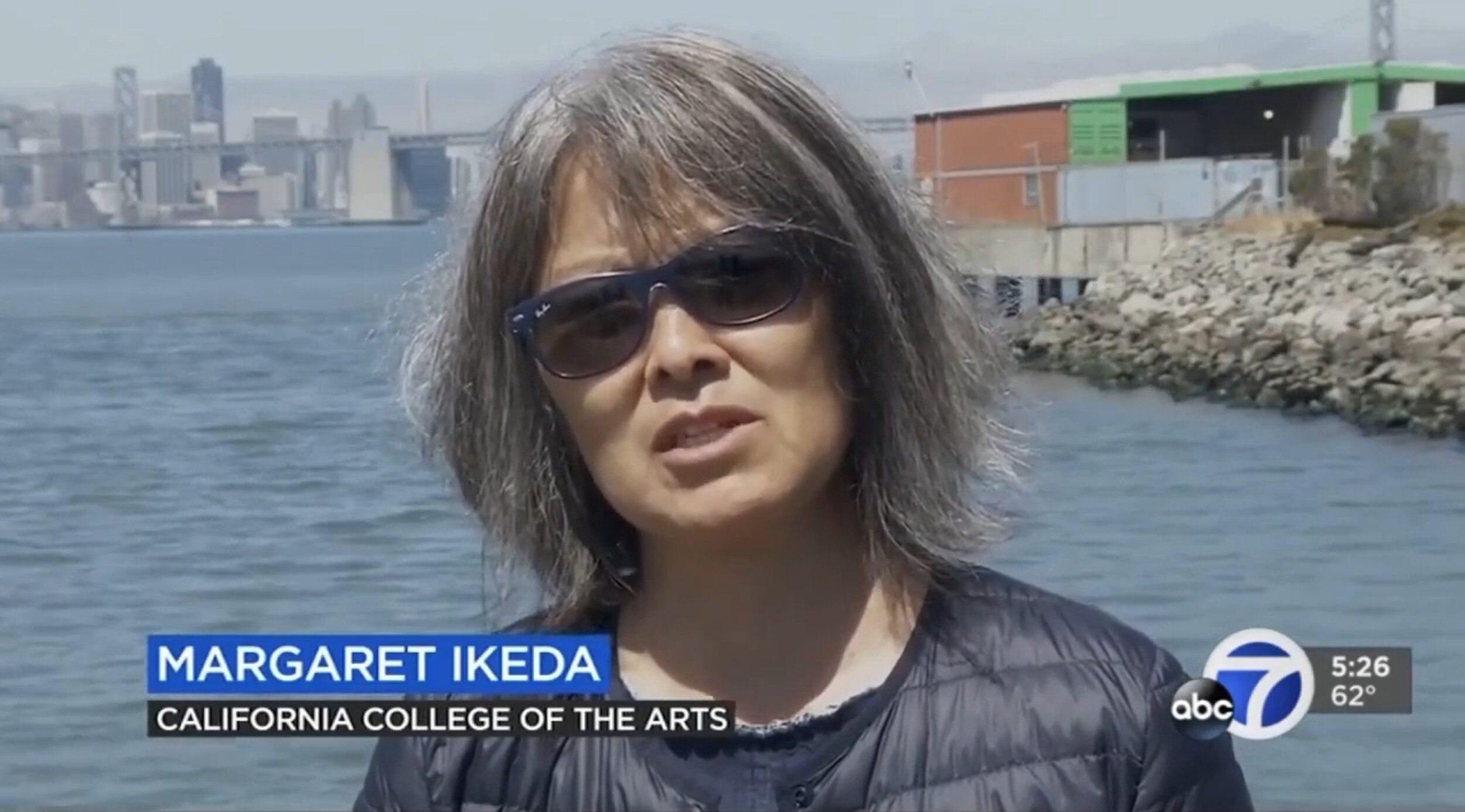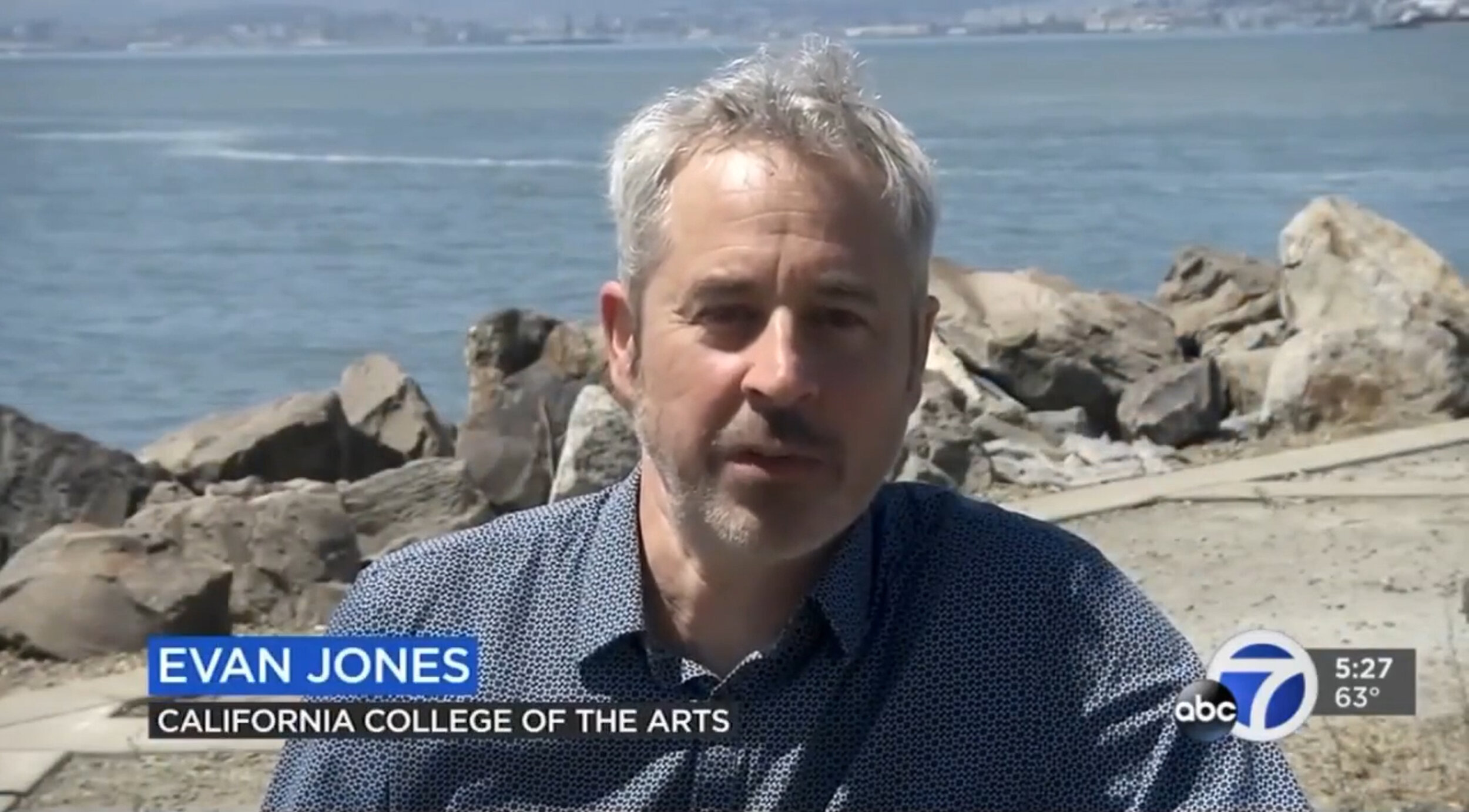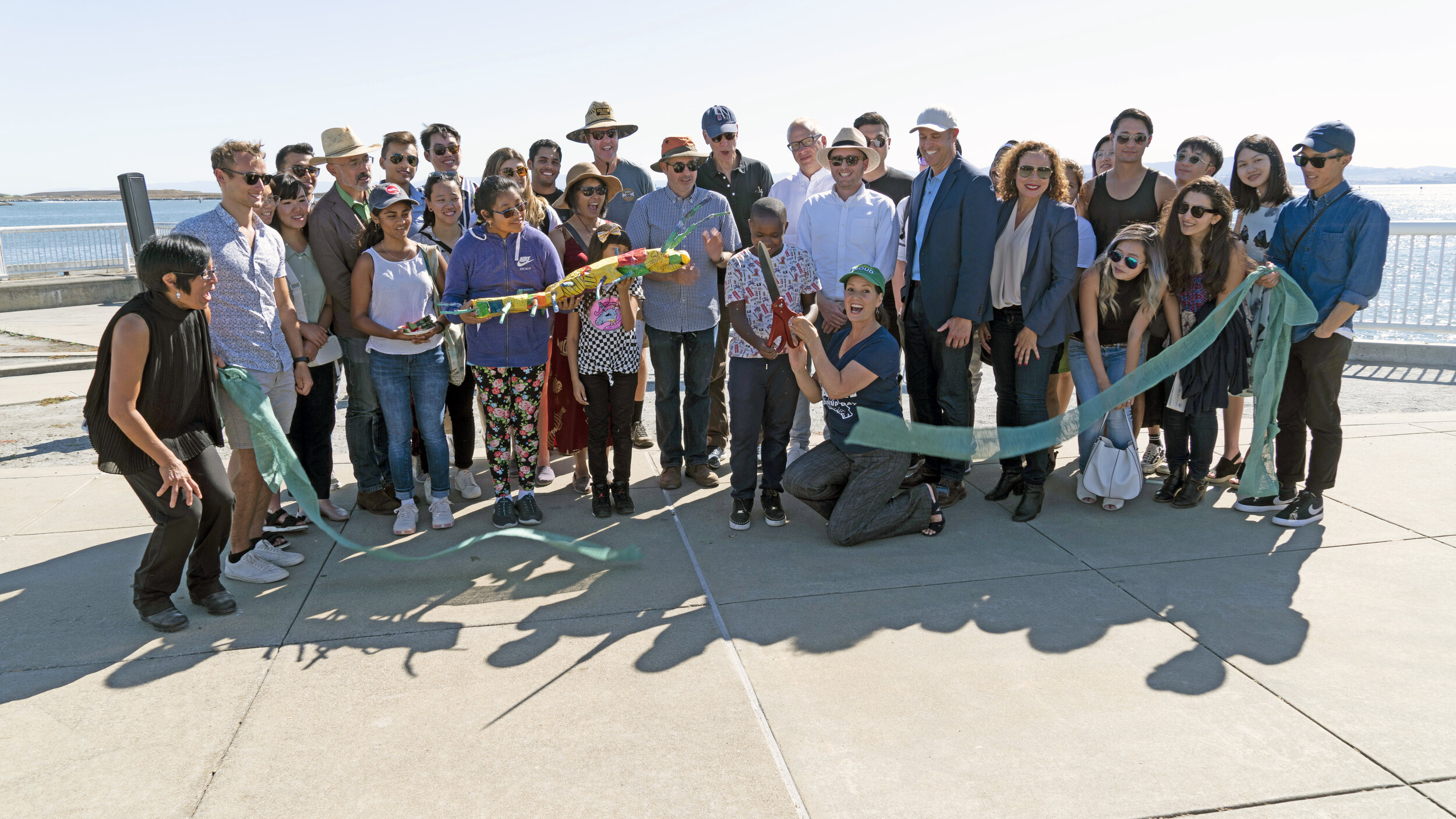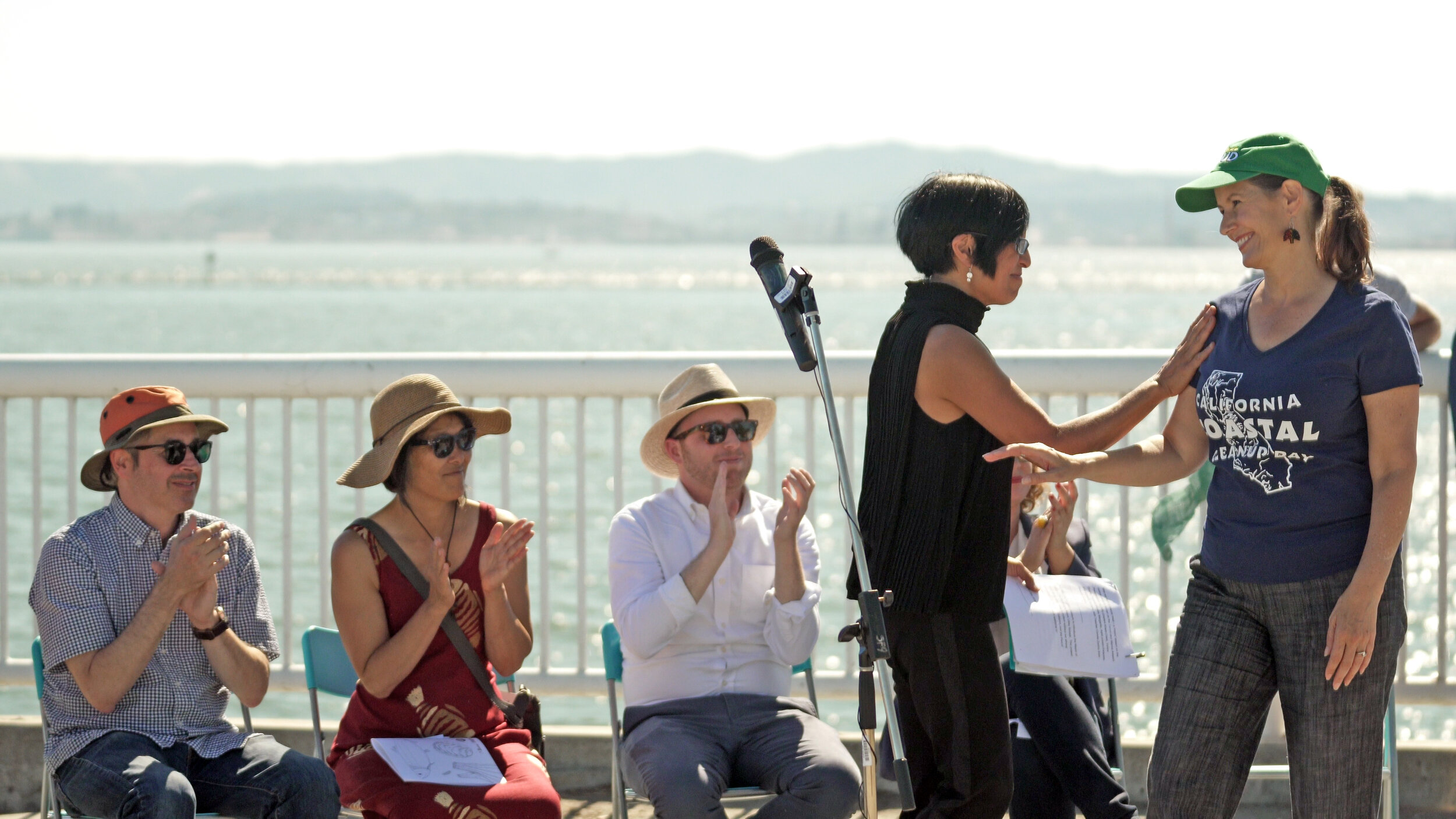During a weekend of worldwide climate protests and California Coastal Cleanup Day, leaders from California College of the Arts (CCA), Oakland Mayor Libby Schaaf, Port of Oakland representatives, and community members gathered on Saturday, September 21, to commemorate the launch of the Buoyant Ecologies Float Lab in Oakland’s Middle Harbor. This innovative floating research station offers a first-of-its-kind approach to addressing the effects of climate change to be deployed in the San Francisco Bay. The event was organized by the Architectural Ecologies Lab in partnership with CCA Architecture Division and project funder CCA Center for Impact.
Led by CCA architecture faculty and AEL directors Adam Marcus, Margaret Ikeda, and Evan Jones, the Float Lab builds upon five years of applied research at CCA and merges expertise of architects and designers, advanced digital fabrication manufacturers, and marine ecologists. It is engineered to serve as a breakwater to reduce coastal erosion and also be a habitat for marine life in order to increase marine biodiversity. The Float Lab will be used as an educational tool in fulfillment of Middle Harbor Shoreline Park’s mission to be a place for learning about local history, natural environment, maritime activities, and stewardship for the environment.
The Float Lab launch celebration kicked off with a jazzy, New Orleans–style ceremonial procession performed by the Edna Brewer Middle School Band. The band led over 100 guests down to Port View Park, where the festivities and remarks took place. In the crowd were City of Oakland and Port of Oakland leaders, fifth grade students from Prescott School in West Oakland, musicians from Edna Brewer Middle School in Oakland, multiple community members, and CCA leadership and faculty, as well as current and former CCA students involved with the development of the Buoyant Ecologies research. The celebratory procession lead guests to Port View Park, where the community picnic joyfully commenced with food, refreshments, DIY kites, and coloring book activities as they viewed the Float Lab doing its work in the bay. The event even featured specialty 3D-printed Float Lab-shaped cakes, created by culinary artist and CCA M.Arch alum Carlos Sabogal.
The distinguished speakers then gathered for remarks. Speaking at the event were (in order): JD Beltran, director of CCA Center for Impact, Amy Tharpe, director of Social Responsibility, Port of Oakland; Adam Marcus, Margaret Ikeda, and Evan Jones, CCA Architecture faculty and Buoyant Ecologies Float Lab project leaders; Stephen Beal, CCA president; Keith Krumwiede, CCA dean of Architecture; fifth grade students from Prescott School; Brad McCrea, director of Regulatory Program, San Francisco Bay Conservation and Development Commission; and Richard Sinkoff, director of Environmental Programs and Planning, Port of Oakland; and Libby Schaaf, Mayor of Oakland.
Four students from educator Connie Zunino’s fifth grade class at Prescott School in West Oakland gave a special presentation about Tanaids, a small crustacean native to the bay. The students displayed a colorful, papier-mâché representation of a Tanaid while stating scientific facts delivered in rhyming poetic verse.
Oakland Mayor Libby Schaaf concluded the remarks. Wearing her California Coastal Cleanup T-shirt and green Oakland Proud ball cap, Mayor Schaaf delivered impassioned remarks about the importance of offering innovative solutions to climate change and expressed her commitment to environmental stewardship, especially for future generations: “What’s so exciting about the Float Lab is this is not just a scientific laboratory, this is a show of power from our students—our students at CCA, our students in the Oakland Unified School District—and just know that you have an entire community here in the city of Oakland cheering you on, telling you how important this work is, and telling you to use this information for good, for change.” She then shared the ceremonial ribbon-cutting moment with one of the fifth grade students from Prescott School.
“The challenges around environmental issues are just enormous, and we’re so proud of the work that our faculty and students have done to begin to address this,” said CCA President Stephen Beal. “The founder of CCA, Frederick Meyer, believed that the best thing was to take young creative people and to connect them to the complexities of social, political, and economic life. And that’s been at the heart of CCA for 112 years. Never has that been more important than it is today.”

